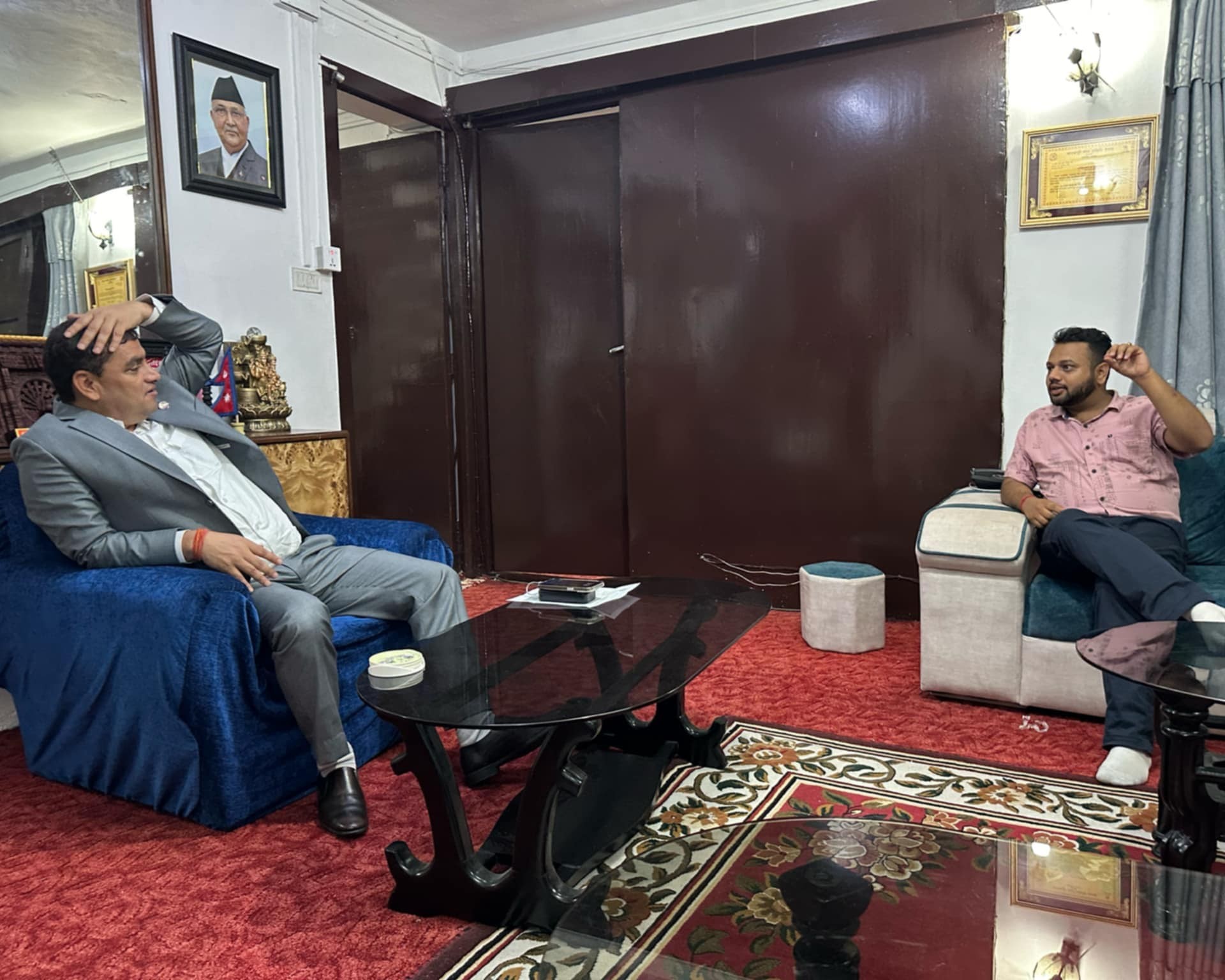During his field research in the remote Karnali Province of Nepal, Pradish explored the pressing issue of rural doctor retention. Based in the mountainous district of Jumla, Pradish conducted interviews and focus groups across seven rural municipalities to understand the challenges and opportunities local leaders face in sustaining a reliable medical workforce.
His project took root not just in clinics and municipal offices, but also within the cultural fabric of the communities he served. One of his earliest field visits brought him to a traditional community gathering where hundreds convened to consult with spiritual healers, an event so culturally significant that even the President of the Rural Municipality participated. This annual ritual, during which new healers are ceremonially empowered, offered Pradish an important lens through which to understand how traditional beliefs still shape health-seeking behaviors in rural Nepal.
Pradish’s work combined ethnographic curiosity with a deep engagement in policy conversations. As he facilitated in-depth interviews and focus group discussions with municipality presidents, health coordinators, and female community health volunteers, a clear theme emerged: while local governments wanted to recruit and retain doctors, they lacked sustainable systems and resources to support them. “Everyone wants a doctor in their village,” Pradish explained, “but they know the current infrastructure isn’t enough to keep them there.” Still, he noted encouraging signs: municipal leaders were willing to brainstorm solutions, and discussions about long-term investment in health systems were starting to take root.
His research also gained momentum through the support of local institutions. Public health students and faculty at the Karnali Academy of Health Sciences (KAHS) provided critical help in coordinating interviews and translating qualitative data. These collaborations enriched the study and created an unexpected educational exchange.
By October, his fieldwork had drawn the attention of national stakeholders. With the support of KAHS faculty, Pradish shared early findings with Nepal’s Ministry of Health and Population, where his work was met with appreciation and curiosity. Local collaborators—including students, health leaders, and elected officials—were eager to see the final report and discuss how its recommendations might guide future policy.
Throughout his time in Jumla, Pradish was struck by the complexity of delivering health care in high-altitude, underserved areas, and by the generosity of the people who welcomed him into their communities. His work sheds light not only on the logistical challenges of doctor retention in rural Nepal, but also on the broader interplay of cultural beliefs, political will, and community resilience in shaping health systems.
